
The offshore RMB connection
By Olivier Grimonpont What a difference a year makes, or does it? Here we are at the beginning of a new year, ready to manage the challenges before us. It's also a good time to take stock of what has changed and not changed over the past year.
Unfortunately, the global economic and regulatory pressures of the past years are still with us, which will have a meaningful impact on how we do business during the period ahead. While favourable trends are difficult to find these days, one of the shining stars is the offshore RMB market.
RMB settlement volumes in Hong Kong more than doubled over the past year, RMB cash deposits soared to well over RMB 600 billion and the number of issuers tapping into this market continues to grow. There is also increasing interest in Reg S and Rule 144A securities issuance, and we're hearing about plans to issue the first CNY-denominated sukuk.
The most active issuers of CNY-denominated paper are based in mainland China and Hong Kong. They are working through both syndicated and non-syndicated distribution channels, targeting both local and foreign investors. Issuers are mostly using one of two options to tap the “dim sum” bond market, either by issuing RMB-denominated securities through the Hong Kong Central Money Markets Unit (CMU) or the international central securities depositories (ICSDs), such as Euroclear Bank. Within the two options, the issuance process is very similar, except for inclusion of the “lodging agent” that only accompanies issuance through the CMU. International issuers are already familiar with the ICSD issuance process, which is the same as for Eurobonds.
We find that issuers are becoming more sophisticated when selecting the place of RMB securities issuance, considering where they will be more likely to reach a local or international investor base. Moreover, if there are any special requirements, such as the need to collect tax certificates specific to the issuer’s jurisdiction, they are including this consideration in their choice of venue.
Due to its strong position as an international financial centre and hub to mainland China, Hong Kong has clearly established itself as the natural offshore RMB centre. Singapore, New York and London are also positioning themselves as alternative offshore centres, and RMB-denominated bonds are now even listed in Luxembourg. Trades in some RMB bonds may be settled in a currency other than the RMB, which are known as synthetic bonds.
The offshore RMB market is still a relatively short-term paper market. More than 96% of issues have a tenor of five years or less. In addition to RMB-denominated bonds, we are also seeing equities, investment funds and hybrid securities in RMB.
Thus, the internationalisation of the offshore RMB-denominated securities market is a reality. And, with this favourable trend comes the responsibility for market participants to manage exposures arising from different types of transactions involving these securities, particularly on a cross-border basis. For example, the CME Group, the world’s largest futures exchange based in the US, will allow international investors to use the RMB as collateral for trading in all its futures products in January 2012.
These are some of the reasons why Euroclear Bank is a strong supporter of collateral pooling, where assets held in a domestic market, either in the local CSD or with local banks, can be used to support collateral needs for cross-border transactions outside the home market. This also means that assets held in Euroclear Bank can be as easily moved to the domestic market or abroad for the same purpose. The range of securities that may be used as collateral is enormous, when considering that Euroclear Bank has more than €22 trillion of assets held in custody.
The collateral management services to be offered by local entities, such as the local CSD, can be white labelled or offered as a Euroclear Bank service to their clients. Settlement of collateral movements occurs locally between local CSD accounts, and local CSDs retain full ownership of their contracts and relationships with their members. The service can also be extended to help local market participants manage their collateral needs for central counterparty margin management. And, the range of transactions are almost limitless, including repos, derivatives, securities loans, central bank monetary policy operations, access to central bank liquidity and more.
The international capital market community has been seeking ways to ease access to China and promote best practices within this fast-changing market. For example, SWIFT and the Asian Securities Industry & Financial Markets Association (ASIFMA) have organised and led various working groups to tackle issues relating to reference rates, the distinction of trade versus non-trade settlement, the differences between onshore and offshore transactions, and the possible need for a new currency code (CNH) for offshore CNY, among others.
There are also some exciting developments happening on a pan-Asian dimension. A task force comprising Asian central banks, CSDs and Euroclear Bank are looking to create a post-trade infrastructure for the clearing and settlement of Asian bond transactions. A pilot platform is being conceived for launch in the first months of 2012. The Hong Kong Monetary Authority, Bank Negara Malaysia and Euroclear Bank will streamline cross-border settlement of Asian bond trades, build a common securities database, manage relevant corporate actions, facilitate the primary issuance of new securities and perform the necessary collateral management functions to ease cross-border flows. The beauty of this common approach is that it tackles local market issues and needs using existing infrastructure, thereby limiting up-front investments and providing a quick time-to-market timeframe. Moreover, it enables each country to develop its local bond market at its own pace, offers issuers the opportunity to reach investors in multiple markets through a single platform and provides the foundation for future initiatives to harmonise market rules and practices across markets.
We look forward to welcoming other Asian infrastructures to connect to this common platform and to consider the appropriate involvement of other business partners, such as SWIFT and global custodians.
The world's capital markets have their sights on the APAC region. While Asia is not immune to the turmoil storming through the US and Europe, the growth prospects of many Asian and South American markets are expected to outperform the western world.
The success of the offshore RMB market is clear and is evidenced by the confidence investors have shown in the stability and promise that the region can offer. The infrastructure service providers have an important role to play in furthering progress while keeping a very watchful eye on managing the risks associated with more global market participation in the region.
Olivier Grimonpont, General Manager and Asia-Pacific Regional Head, Euroclear Bank




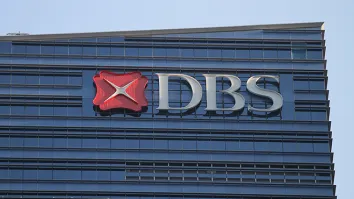


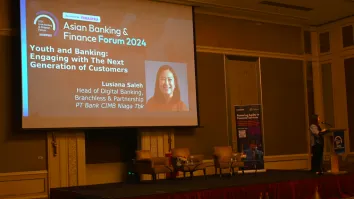

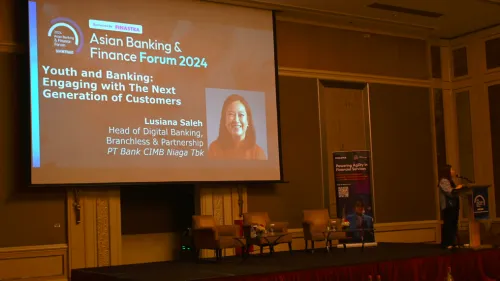
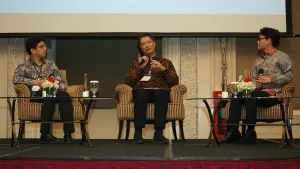
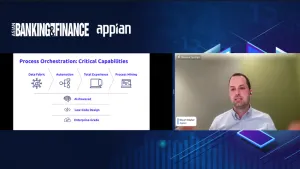
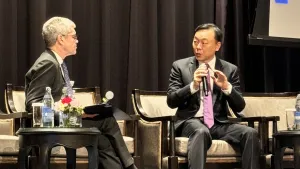




 Advertise
Advertise






